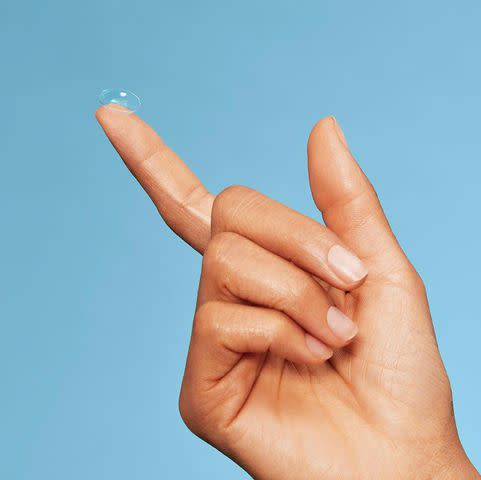Cancer-Causing 'Forever Chemicals' Found in Many Kinds of Contact Lenses, Study Finds
Lab tests of 18 popular kinds of contact lenses found extremely high levels of organic fluorine, a marker of certain chemicals that can lead to cancer, liver disease and autoimmune diseases

Many soft contact lenses in the United States are made of compounds that are linked to numerous severe health issues, new research shows.
A study conducted at an Environmental Protection Agency-certified lab tested 18 popular kinds of contact lenses and found extremely high levels of organic fluorine, a marker of PFAS, in each.
According to the United States Environmental Protection Agency, PFAS (per-and poly-fluoroalkyl substances) are a group of about 14,000 man-made chemicals that are "very persistent in the environment and in the human body – meaning they don't break down and they can accumulate over time."
PFAS, also known as "forever chemicals" by the NIH, can last for years without breaking down and are linked to cancer, fetal complications, liver disease, kidney disease, thyroid disease, fertility problems, autoimmune disorders and other serious health issues.
Never miss a story — sign up for PEOPLE's free daily newsletter to stay up-to-date on the best of what PEOPLE has to offer, from juicy celebrity news to compelling human interest stories.

Related: Ophthalmologist Shares Shocking Video Removing 23 Contact Lenses from a Patient's Eye
During the lab testing, which was commissioned by Mamavation and Environmental Health News public health blogs, researchers found that all of the tested contact lenses exceeded 100 parts per million (ppm) of organic fluorine, which is equivalent to 100 million ppt, or 50,000 times more than the highest level deemed safe in drinking water by the EPA.
"You could consider [the lenses] almost pure PFAS," Scott Belcher, a North Carolina State University researcher and scientific adviser of the lab testing, told The Guardian.
He told the outlet that there is little that consumers can do to protect themselves beyond wearing glasses instead of contact lenses and urges people to speak to their providers if there are concerns.
"There are alternatives that may have some downsides and upsides, but that's a discussion to have with your doctor," Belcher said.
For more People news, make sure to sign up for our newsletter!
Read the original article on People.
